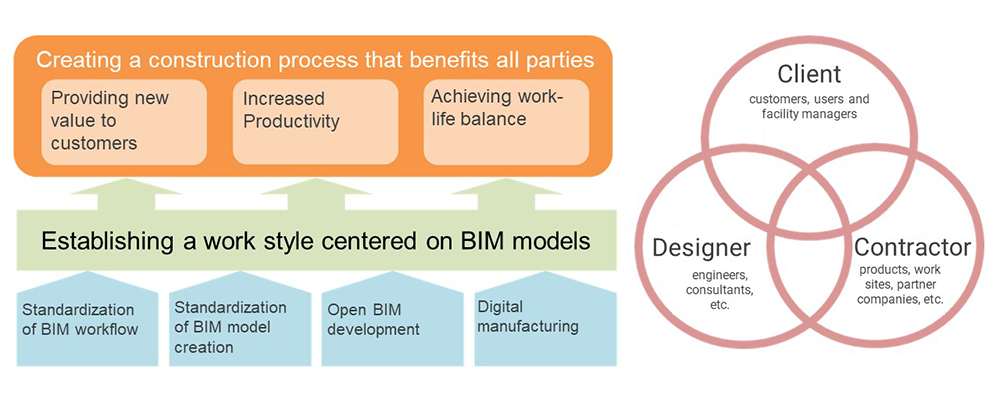Supply chain
Contents
Ⅰ. Takenaka Corporation's CSR procurement
Based on our Procurement Policy and Action Guidelines as well as our Supplier Action Guidelines, Takenaka Corporation is building a sustainable construction supply chain by promoting CSR procurement in which employees and all suppliers (partner companies, etc.) are working together not only on quality, price, delivery, and safety, but also on the environment, human rights, and labor.
1. Procurement Policy
We have established a Procurement Policy to develop CSR procurement in cooperation with our suppliers, and we use this policy as the starting point for all procurement activities.
2. Action Principles
We have established nine items that serve as the core of promoting procurement activities based on our Procurement Policy.
3. Supplier Action Guidelines
In order to deploy our procurement policy in unison with our suppliers, we have summarized specific action details of our Action Principles in the Supplier Action Guidelines, and we are working to spread CSR procurement by sharing these throughout our supply chains.
4. Environmentally friendly activities
In order to realize a decarbonized society, a resource recycling society, and a society in harmony with nature through our Environmental Concept, we are actively deploying environmentally friendly activities throughout our supply chains.
5. Human Rights Policy
Respecting basic human rights and labor standards, and striving for mutual understanding and respect, we have established a Human Rights Policy on which our procurement activities are premised in order to create healthy and rewarding work environments.
6. Respect for human rights activities
In order to realize our Human Rights Policy, we focus on human rights risks at construction sites and in supply chains, and we work together with our suppliers to deploy respect for human rights activities.
Human rights due diligence
In 2018, we carried out human rights due diligence with external experts in order to identify and assess five risks in the area of respect for human rights. Among these, two human rights risks were identified in the field of procurement: "workers at overseas supplier factories (child labor, impact on local residents, etc.)" and "foreign workers in Japan (technical intern trainees, special skills, etc.)
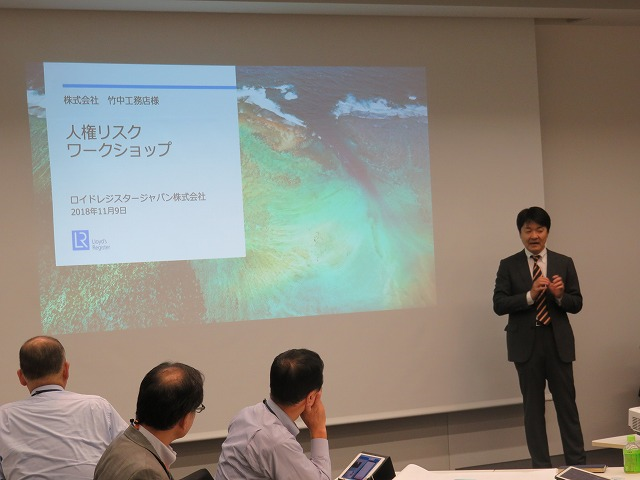
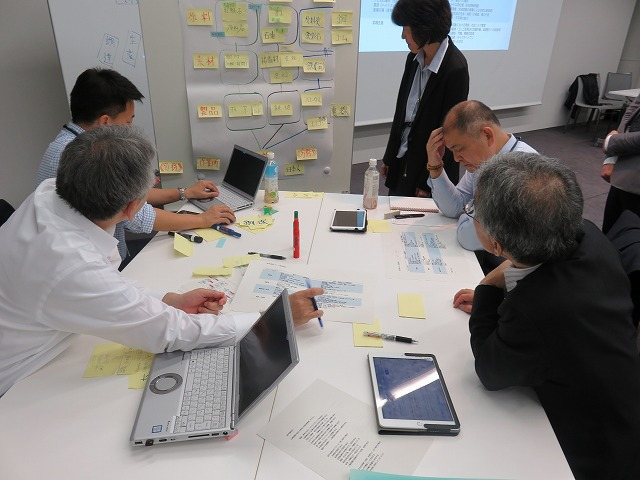
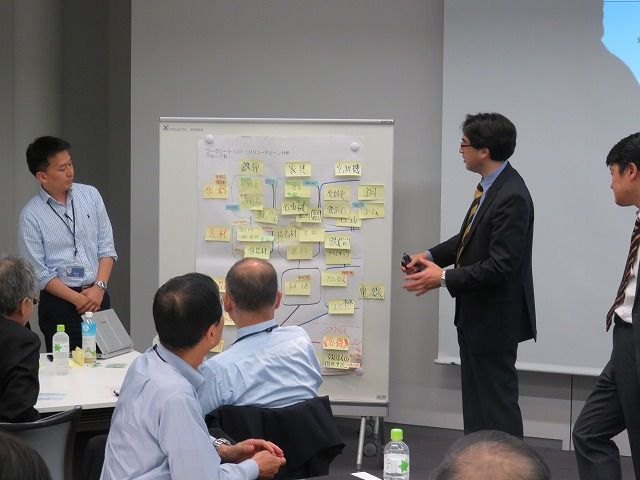
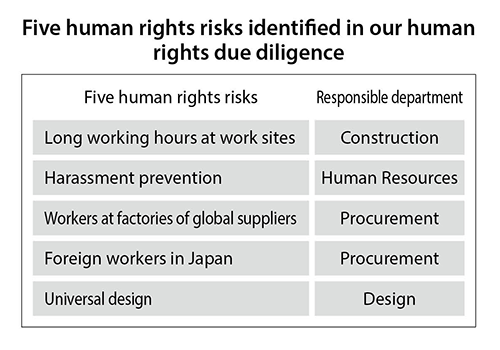
Specific initiative example: Confirmation of respect for the human rights of foreign workers at partner companies
In order to understand the actual situation of respect for human rights of foreign workers, in 2019 we visited a group company that directly employed technical intern trainees. In the presence of the company's administration department and the domestic host organization (supervisory organization), we provided an opportunity for dialog with these trainees and conducted a fact-finding survey, which included checking their treatment and the condition of the company dormitory.
In 2021, moreover, while receiving advice from the Organization for Technical Intern Training (OTIT), which is in charge of proper implementation and protection of technical intern training, and the Foundation for International Transfer of Skills and Knowledge in Construction (FITS), which is a Proper Labor Supervision Agency for "specified skills," we visited a member company of Chikuwakai, an organization of our partner companies, that directly employs foreign workers who are technical intern trainees and possess specified skills qualifications. We checked the status of several items, which included working hour management and payment of overtime wage rates, annual paid holidays taken and wage payments for those days, whether there were any inappropriate deductions, and the location of passports. We are also expanding the scope of our verification activities with Chikuwakai member companies by checking details such as the status of daily communications, daily life support, and the company's response to requests for improvement.
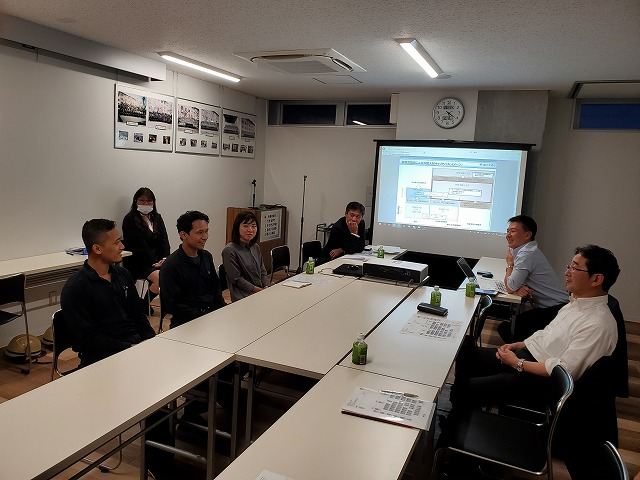
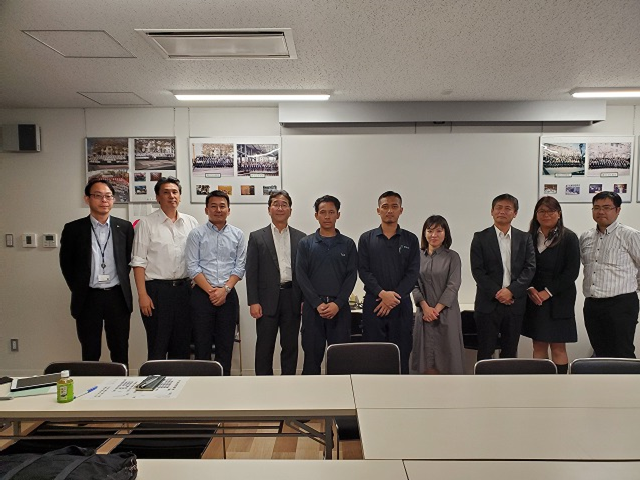

How it will be done in the future
In reality, technical intern trainees and foreign workers with specified skills work qualifications are often employed by secondary or tertiary companies rather than primary companies, so in addition to Chikuwakai member companies, we also visited secondary companies under our umbrella that employ foreign workers, and we conducted fact-finding surveys. By expanding the scope of our activities beyond our primary contracting companies to include secondary, tertiary and other companies, we are promoting activities to raise awareness and respect for human rights, and we are striving to prevent such problems from occurring.

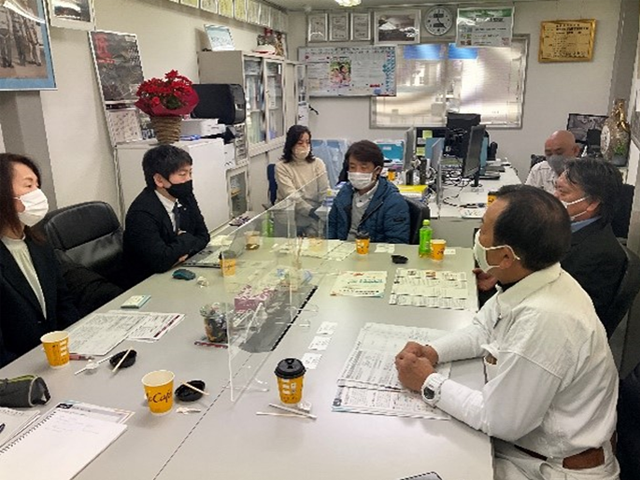
[Opinions from external experts] ~Mr. Hidemi Tomita, LRQA Sustainability Co., Ltd.~
Takenaka Corporation's continuous approach of conducting regular reviews, including actual visits to companies to conduct fact-finding surveys, and steadily implementing the PDCA cycle, is considered to be a model approach in the construction industry.
Amid an environment where human rights due diligence is becoming increasingly legislated and mandatory, especially in Europe, the Japanese government has also formulated guidelines for human rights due diligence, and efforts to respect human rights are being strongly called for. As our efforts progress, we expect to face difficulties in keeping up with social systems, but we would like to continue our efforts toward respect for human rights as a leading company.

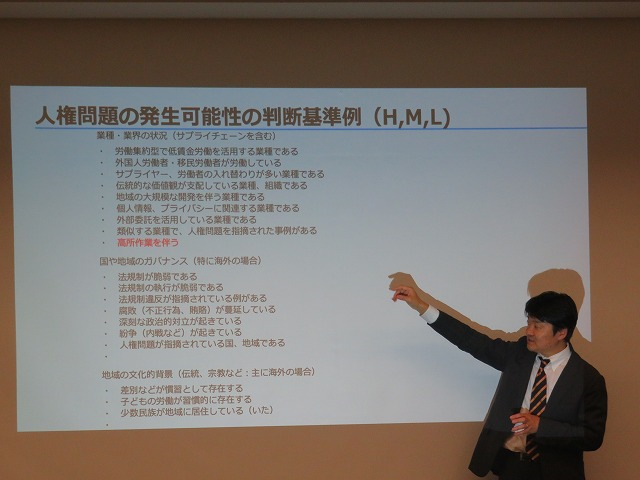
7. Declaration of Partnership Building
Advocating the aims of the Declaration of Partnership Building by the Cabinet Office, the National Association of Small and Medium Enterprise Promotion Organizations, and others, Takenaka has publicly announced this declaration, the goal of which is to mutually increase added value through coexistance and coprosperity, and new collaboration throughout the supply chain.
8. Declaration of Respect for Labor Cost Estimates
Based on the Declaration of Respect for Labor Cost Estimates by the Japan Federation of Construction Contractors, we are working to improve the treatment of skilled construction workers and promoting support for securing and training construction workers at our suppliers (partner companies).
Ⅱ. Promoting procurement in collaboration with suppliers
Takenaka has a Procurement Policy, "Promote procurement that meets the needs of society and customers in concert with our suppliers," which is based on the fourth line of our Company Policy, "Act in harmony with the organization, and pursue prosperity for all of society." Underlying this is the philosophy of Renichi Takenaka, the 15th head of the Takenaka family, "We should organically combine the capabilities of Takenaka with those of customers and partner companies, and strive for true prosperous coexistance through the strong bonds and competitiveness caused by that synergistic effect." In concert with our suppliers, we will continue to pass on many "architectural works" to future generations based on close cooperative relationships that stem from mutual understanding.
1. Chikuwakai
Chikuwakai is a top-level construction technology group made up of our major partner companies, which have passed the strict standards of Takenaka Corporation. Formed in 1941, it currently consists of more than 1,200 member companies in seven regions nationwide.

Ⅲ. Takenaka Meister System
1. Takenaka Excellent Foreman System
In 2012, we introduced our Excellent Foreman System whereby we appointed foremen of skilled construction workers, who had met strict standards, as Grand Meister, Senior Meister, Meister, and Junior Meister. These people have since been active at work sites in their respective regions.




2. Takenaka Excellent Engineer System
In 2017, we introduced our Excellent Engineer System for chief engineers, construction engineers, and others at partner companies. Certifications include Senior Meister CE and Meister CE. (CE stands for Chief engineer.)


3. Securing and training skilled construction workers
In order for the construction industry to continue to play its role as a "guardian of the community," it is necessary to secure and develop the people who will shoulder it in the future. Aiming to achieve this, we are collaborating with our partner companies to communicate the industry's attractiveness, and to create appealing work environments for young people and women.
Communicating the attractiveness of the construction industry
In order to have students experience the appeal of working in the specialty construction industry and broaden their career choices, each year we are collaborating with Chikuwakai, an organization of our partner companies, to hold "hands-on workshops," "school visits," and "internships" for high school students. We also produce our own pamphlets and use them for PR during recruitment activities. Many high school students join Chikuwakai companies after participating in our hands-on workshops, which have served as a catalyst for young people to join these companies.
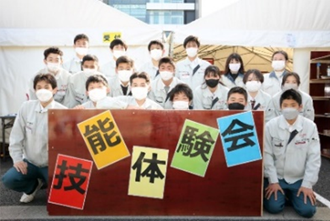
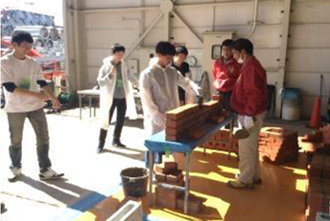
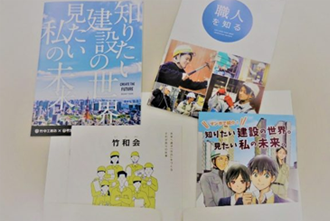
Developing leaders
We continually provide "hand-on training" for skilled workers at our own training facility Takenaka Practical Technology Training Center (Omoi). By improving the skills and quality awareness of these workers, and by creating a foundation on which they are treated in a manner commensurate with their skills and experience, this program also helps prevent skilled workers from leaving their jobs.
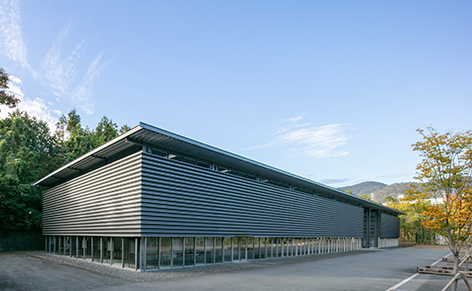
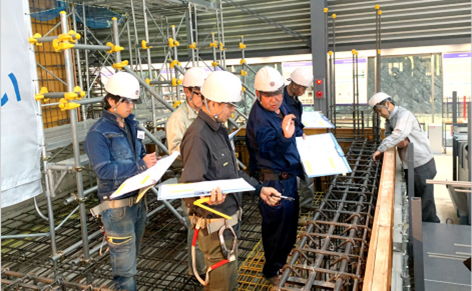
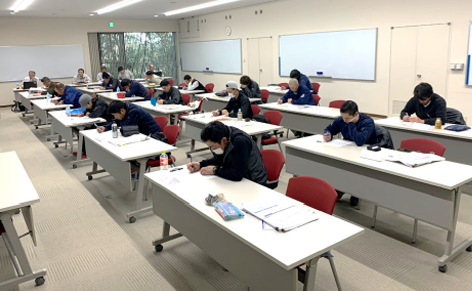
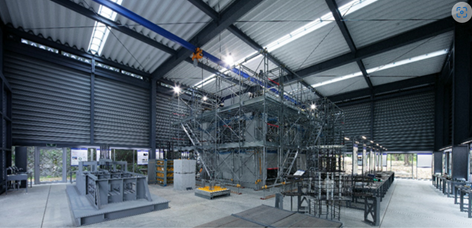
4. Promotion of Construction Career Up System (CCUS)
The Construction Career Up System (CCUS) is a system that registers and accumulates the qualifications and work history of skilled workers, and then links this to their treatment. It is being promoted through public and private sectors in cooperation with industry associations and the government. Takenaka is also using CCUS to build career path models for skilled workers and to improve their treatment.
5. Promoting BIM in collaboration with partner companies
BIM (Building Information Modeling) is a system based on a 3D digital model of a building. that seamlessly connects not only design to construction, but also the manufacturing process of material manufacturers and others. We are promoting BIM in collaboration with partner companies in order to maximize the effectiveness of BIM utilization.
Meeting with partner companies to exchange opinions on BIM
We are promoting the use of BIM through repeated discussions and coordination with partner companies. In August 2023, we will hold a meeting to exchange opinions on utilization of BIM in steel frame construction. With Chikuwakai playing a leading role, fabricators, drafting companies and others from all over the country will be invited to discuss accelerating the use of BIM.
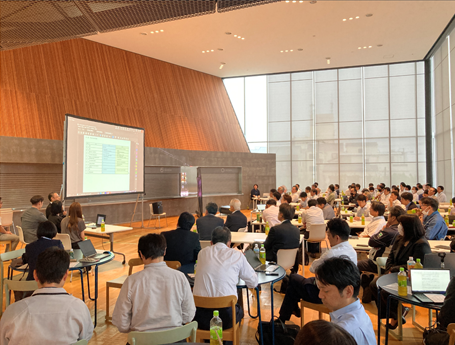

Future initiatives
In the construction industry, a shortage of workers due to declining birthrates and an aging population is becoming increasingly serious, so improving labor productivity has become an urgent issue. By promoting the use of BIM and digitizing a series of processes from design and construction to maintenance and management, we hope to achieve drastic improvements in labor productivity.
Since there is no single best BIM utilization method, we would like to work with our partner companies on each type of construction project and continue to study the best BIM utilization method through repeated discussions and dialogs. Additionally, by converting business processes to a BIM model base and establishing a business style centered on the BIM model, we hope to achieve a construction process that benefits everyone involved in the project, including customers.
